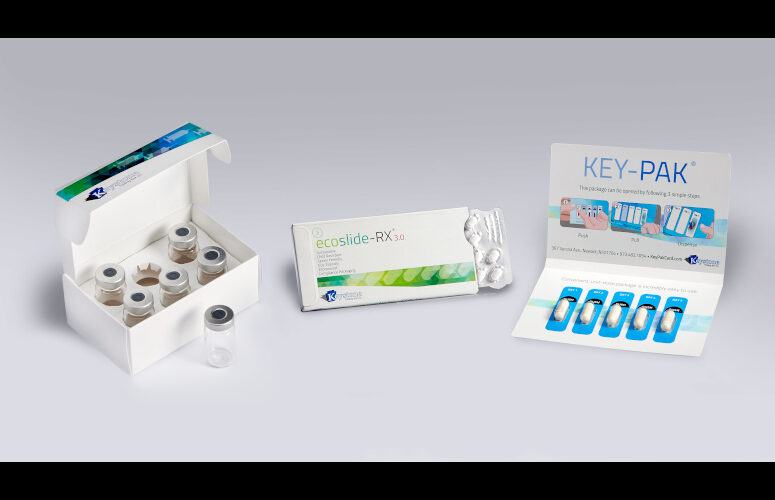
Port Authority of New York & New Jersey Board Adopts 2020 Budget
Operating Expense Budget invests in initiatives to enhance the customer experience at agency facilities
On Dec 13, 2019Following a month-long public comment period, the Port Authority Board of Commissioners approved the agency’s 2020 budget consisting of $3.4 billion for operating expenses and $3.6 billion for capital spending during 2020. The budget continues the agency’s commitment to fund best-in-class safety and security at agency facilities and customer initiatives at all facilities, to provide additional funds to support operations for AirTrain Newark and AirTrain JFK, and to support the PATH Improvement Plan. In addition, the new budget provides funds for significant state-of-good-repair work at the agency’s legacy facilities and continues to replace aging infrastructure that is past its useful life.
The 2020 Operating Expense Budget includes an inflation-based 1.9 percent increase of $64 million in core expenses versus the 2019 Operating Expense Budget. In addition, it provides an additional $62 million of incremental high priority spending that is comprised of 1) spending to achieve important upgrades in facility operations and in customer experience initiatives, 2) spending to support Capital Plan construction projects, and 3) spending that preserves or generates revenue. The incremental high priority spending includes funds for multiple customer service initiatives as well as funding to crack down on illegal hustling at the airports, to enhance toll recovery activities, and to fund the PATH Improvement Plan. After consideration of the incremental high priority $62 million in spending, the 2020 Budget is $3.4 billion, or $126 million (3.8 percent), higher versus the 2019 Budget. The agency anticipates that the growth in operating expenses will be more than offset by the increase in gross operating revenues. The agency also expects that future year’s operating expense spending growth will be in line with inflation, after excluding short-term high priority spending items.
“This budget is a prudent, fiscally sound spending plan that drives the agency’s ongoing commitments to safety and security, customer experience, sustainability and building new facilities to replace ones that have outlived their useful lives,” said Port Authority Chairman Kevin O’Toole. “I’d like to commend the staff for their hard work and diligence in crafting a budget that supports all of the agency’s strategic initiatives while maintaining core expense growth at an inflation-based 1.9 percent.”
“Our mission is to safely and efficiently move millions of people and tons of cargo through our airports, tunnels, bridges, seaport and PATH system annually, and this budget fulfills that goal in a fiscally responsible manner,” said Port Authority Vice Chairman Jeffrey Lynford.
- The 2020 Budget includes funding to cover the agency’s priorities, including:
- $787 million to provide world-class safety and security at Port Authority facilities, to upgrade cybersecurity initiatives and to enhance emergency operations. An additional $7.9 million above the 2019 Budget is included to increase enforcement against unlicensed livery operators at the airports, to increase coverage for the Airport Unified Operations Centers, and to increase police presence at the airports to manage traffic flow and other disruptions resulting from construction.
- $68 million to improve customer experience and to support increased volumes of activity at agency facilities, including an additional $10.4 million above the 2019 Budget to enhance customer initiatives at airport terminals and at PATH.
- $76 million is included for targeted initiatives in several operating areas to achieve important operational improvements, including an additional $20 million for AirTrain Newark operational support and for AirTrain JFK for major repairs and maintenance, to advance the PATH Improvement Plan, and resources to implement the Port Master Plan. Another $15 million increase supports increased civilian operational support at facilities during construction, including traffic mitigation.
- Over $330 million is provided to support sustainability and resiliency efforts that reduce our environmental impact and enhance the resiliency of our facilities. The $3.6 billion Capital Spending Budget includes $310 million for Superstorm Sandy projects for the rehabilitation of PATH substations and tunnels, for Aviation airfield lighting rehabilitation, and for the Holland Tunnel’s latent salt damage mitigation program.
To achieve greenhouse gas emissions reduction goals, $10 million in capital spending is provided for electric vehicle charging infrastructure projects across the facilities. Another $11 million in operating funds are provided to convert our light duty and airport shuttle bus fleet to all-electric, implement an electric cargo handling equipment demonstration project at Port Elizabeth, further our efforts with Port’s Truck Replacement Program and support the Ocean-Going Clean Vessel Incentive program.
To reduce Port Authority energy consumption, four large energy efficiency projects are underway across all facilities, with 9 additional projects under development. Approximately 15 megawatts of on-site solar projects are in design at JFK and LGA airports and PATH. The JFK project will include 10 megawatts of energy storage and 5 megawatts output of the solar system will be for the community benefit.
The 2020 $3.6 billion Capital Spending Budget approved by the board provides funding for a number of critical areas, including 1) multiple major projects to rebuild and replace the agency’s legacy facilities with state-of-the-art infrastructure and 2) a large set of projects to maintain assets in a state of good repair and improve resiliency in the post-Superstorm Sandy era. Major items in the proposed 2020 Capital Budget include:
- $2.1 billion in Aviation spending, including $1.5 billion to continue redevelopment of the agency’s airports. At LaGuardia Airport, construction continues on building an entirely new airport, with the planned completion in 2020 of the Terminal B Headhouse and 70 percent of roadways, as well as planning and design for the AirTrain LaGuardia project. At Newark Liberty International Airport, work proceeds on the construction of the new Terminal One and construction of the new garage and central rental car facility, as well as planning for the new AirTrain Newark and a new Terminal Two. At John F. Kennedy International Airport, planning and early works construction continues to advance the redevelopment of the airport, including new and interconnected terminals, relocated, state-of-the-art cargo facilities, new airport roadways, and ground transportation centers.
- $739 million in spending on Tunnels, Bridges and Terminals projects, including $471 million for upgrades to trans-Hudson crossings; the implementation of cashless tolling at the trans-Hudson crossings; advancement of the George Washington Bridge suspender rope replacement program; and further planning and design activities for a new Port Authority Bus Terminal.
- $389 million in spending on PATH, including $43 million for PATH’s signal system replacement program, for the continuation of PATH station and equipment capital programs, and for vigorous implementation of the PATH Improvement Plan.
- $50 million for Port of New York and New Jersey projects, including $32 million to support construction and design activities at port facilities, completion of the Global Intermodal Container Transfer Facility, an environmental review for the Cross-Harbor Freight Movement Program, and analysis and planning for critical wharf reconstruction work.
- $321 million at the World Trade Center campus, including improvements to One World Trade Center, and continued construction of the West Bathtub Vehicular Access Project.
The 2020 Budget also includes $1.6 billion for debt service charged to operations and deferred operating expenses.
To access more business news, visit NJB News Now.
Related Articles:





